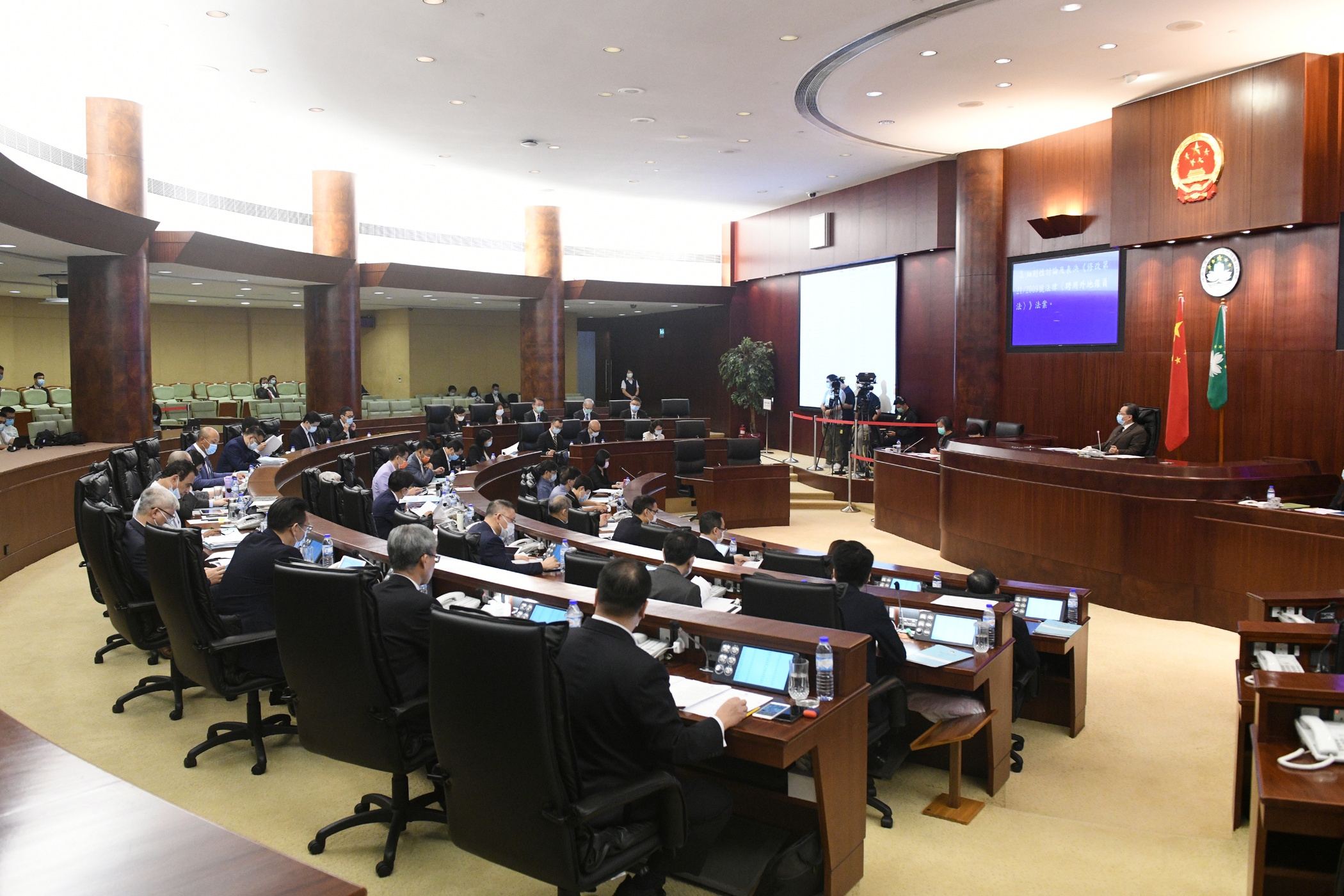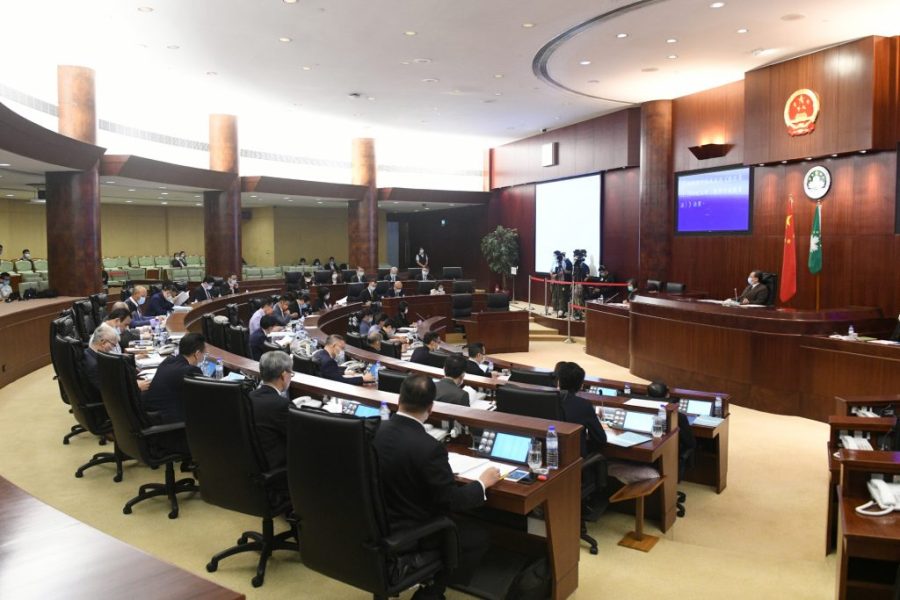The Legislative Assembly (AL) on Tuesday unanimously passed a government-initiated bill that aims to prevent visitors who come to Macao on tourist visas from seeking a job here during their stay and eventually getting a non-resident work permit, colloquially known as a “blue card”.
The bill amends the law on the hiring of non-resident workers, which came into force in 2010.
The bill will take effect 90 days after its promulgation in the Official Gazette (BO).
The government has indicated on several occasions that the amendment is only one of the possible tools to improve the legal system and management concerning the hiring of non-resident workers. The government has also said the improvements in this regard will require further amendments to the law on the hiring of non-resident workers and related immigration regulations in the future.
The bill’s outline was passed during a plenary session of the legislature in July last year. The legislature’s 3rd Standing Committee held four meetings to review the bill.
Secretary for Economy and Finance Lei Wai Nong attended Tuesday’s plenary session when the bill was voted on article-by-article in its second and final reading.
According to the current version of the law on the hiring of non-resident workers and its supplementary by-law, non-locals have to be hired by a local employer first before they can be granted permission to come to Macao to work. Non-resident workers are not granted the right of abode in Macao. After a non-resident’s employment permit is approved by the Labour Affairs Bureau (DSAL), the employer will have to apply to the Public Security Police (PSP), who run the city’s immigration service, for a permit for the worker to stay in Macao upon his or her arrival. Upon the worker’s arrival in Macao, the Public Security Police issues first a stay permit and only afterwards a non-resident work permit, informally known as a “blue card”.
However, based on the current version of the law on the hiring of non-resident workers, Macao immigration officers are not able to identify whether a non-local, upon arrival in Macao, entered Macao as a tourist or as a job-seeker.
According to the bill passed yesterday, after the Public Security Police approve a person’s permission to stay in Macao as a non-resident worker, they will issue the worker with an “arrival notification” for them to enter Macao as a non-resident worker, only then will the worker be issued a stay permit by the police after they enter Macao. The government has said that the bill’s new measure will enable immigration officers to identify whether a person arriving in Macao is entering Macao as a bone fide tourist, or as someone already hired by a local employer.
The amendment bill passed on Tuesday – i.e. the new immigration measure – only regulates non-professional non-resident workers and those who work as domestic helpers. It does not regulate professional non-resident workers.
The bill was quickly passed by lawmakers during yesterday’s plenary session without much debate. Four lawmakers-cum-unionists from the Macau Federation of Trade Unions (commonly known as “Gung Luen”) – Ella Lei Cheng I, Leong Sun Iok, Lam Lon Wai and Lei Chan U – made a joint statement during the plenary session after the bill’s passage, urging the government to propose more comprehensive amendments in the near future to the law on the hiring of non-resident workers, which has been in force for a decade, with the aim of tackling the many issues concerning the hiring of non-resident workers in Macao.
(The Macau Post Daily/Macau News)
PHOTO © Government Information Bureau (GCS)






